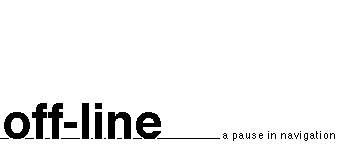 |
 |
November, 1999 |
 |
 |
November, 1999 |
| Giancarlo Livraghi gian@gandalf.it |
|
| |
||
|
There's more to be said, I think, on the not-so-new human values in the driving forces of change. We are not returning to the past; we never had communication tools such as those that are now available. But we are re-discovering values that were dimmed (though not entirely eliminated) in the industrial era. This isn't just an exercise in history. We can be much more comfortable with new trends if we understand how they are based on human behaviors that are rooted in the origin and evolution of our species. "Globality", as such, is a new notion. But in the Middle Ages there was a "transnational" economy that included most of Europe and some other parts of the world. In 1343 a big Florentine bank, Peruzzi and Bardi, collapsed because the king of England refused to pay his debts, establishing the notion of a separate national economy. That was the beginning of a radical change. National states have been independent economies for 600 years. Now we are not going back to the medieval economy, but we are going once again through the turbulence of change as "globality" (as well as regional coalitions such as the European Union) mixes with the recovery of local roots – cultural, ethnical and economic – that split nation states into smaller parts and, at the same time, cross their borders. Communities have a crucial role in the network economy – unlike the centralized companies of the industrial age. Shared knowledge enriches all members of the community. This is not a new notion; there are certain similarities with the middle-age and renaissance "arts and crafts" in several parts of Europe (especially in Italy and in the Netherlands). Their strength was not only in technology and training, but also in shared knowledge and effective management of communities. In contrast, some parts of the new economy seem to replicate another medieval concept: the castle, where everything is concentrated in one closed system ruled by one master. This model has been successful in come cases (such as non-compatible software and fenced-in portals); some barons have made a lot of money and more of them may get very rich. It's hard to tell what the outcome will be, but the community and sharing trend has a much better change of spreading wealth by rewarding people for their work and talent rather than just for being smart on a whimsical stock market. We can also look further back in our history. Many network interchanges are "non monetary". The structure of the internet is based on mutual service, not cash payments. It's not "free", but compensation is not based on money. The same concept can be (and is) applied to all sorts of transactions. Some people believe that we are going back to a "barter economy", but I don't think that's the case. The exchange of services based on mutual advantage, not money, has continued to exist, through the ages, as an essential part of human relations. In a networked world it becomes more relevant; but it isn't "new". In other articles, I wrote about the agricultural lifestyles in our new environment (and the essentially biological nature of the internet.) But we can look also at pre-agricultural notions, such as nomadism. Today's transport systems make us much more easily mobile; and we have communication tools that allow us to continue our work and maintain our relations while we move around. We can free ourselves not only of the forced concentration of the industrial era but also of the territorial constrictions of an agricultural or mining economy. Can historians of economy and social structures help us to understand our present and our future? Probably. But I think the essential point is conceptually simple. Many of the "new" things we discover with the internet are rooted in human nature. That makes them easier to understand – and to manage. |
||